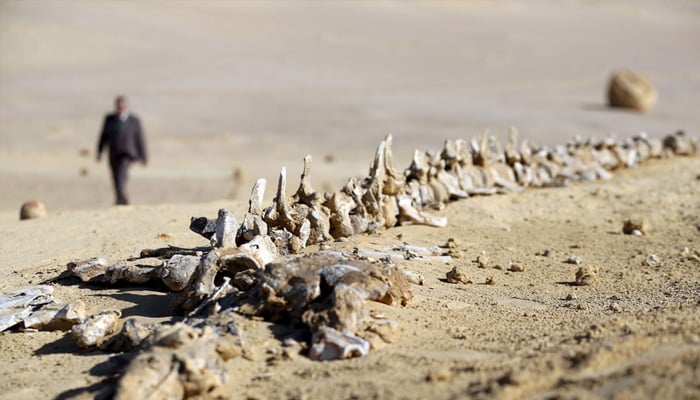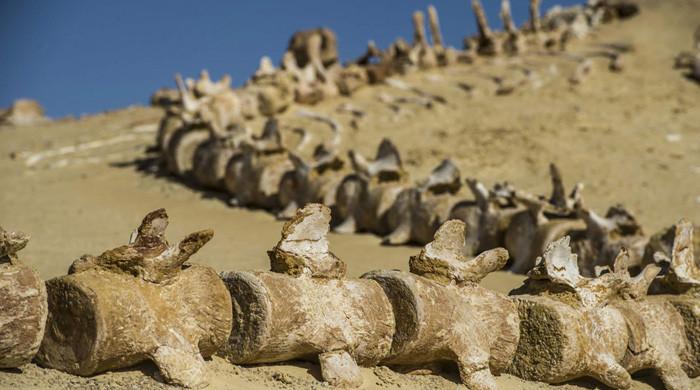A site of the desert in Egypt known as Whale Valley, or Wadi al-Hitan, contains more than 400 skeletons of fossilized whales which show the remarkable evolutionary journey of whales to the sea, Live science reported.
The site, located in the Egyptian Sahara, contains remains of primitive whales dating from the late Eocene era – between 55.8 million and 33.9 million years – when the area was overwhelmed under the Ocean Tethys, according to UNESCO.
“These fossils represent one of the main stories of evolution: the emergence of the whale as an oceanic mammal of an earlier life as a terrestrial animal,” said the UNESCO website.
The first major discovery at Whale Valley occurred in 1902, when paleontologists unearthed a kind of whale previously unknown, Basilosaurus Isis (formerly Zeuglodon Isis). This old whale increased up to 60 feet (18 meters) long and probably tackling smaller whales, crushing their skulls before swallowing them entirely, according to a 2019 study.

“B. Isis had a long muzzle and was armed with sharp incisors and bright cheeks,” said Manja Voss, an expert in marine mammals in Berlin Museum of Natural History and the main author of the 2019 study.
In 1989, a team from the University of Michigan and the Egyptian Geological Museum discovered the fossils of B. Isis with preserved posterior limbs, feet and toes – a rare discovery which confirms the whales had once had legs, according to a review in 2023. Although modern whales lack posterior members, they keep pelvic bones, indicating their terrestrial ascendance, noted Researchers from the University of Hawaii.
In 2005, an almost complete skeleton of B. Isis led UNESCO to declare Whale Valley a World Heritage Site. Since then, more marine fossils have been found, including old turtles, sharks, rays, sea cows and crocodiles, kept thanks to the arid climate of the region from the Pliocene.
The site now works as an outdoor museum with current research and strict protection.




